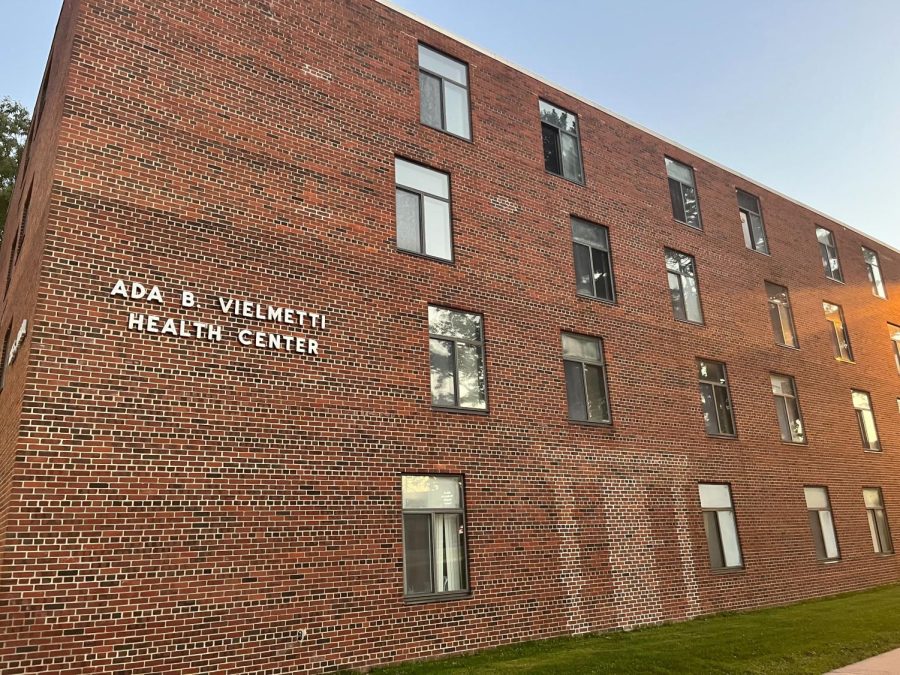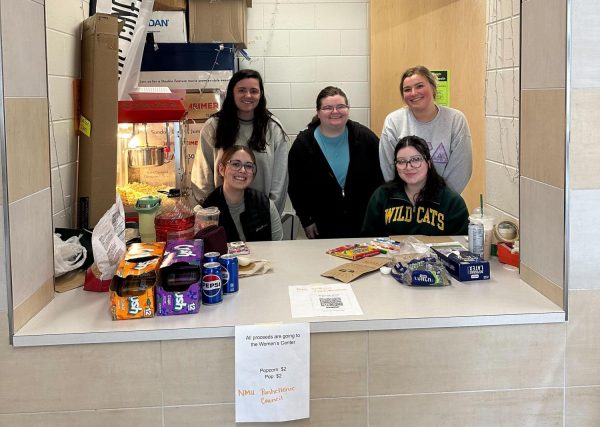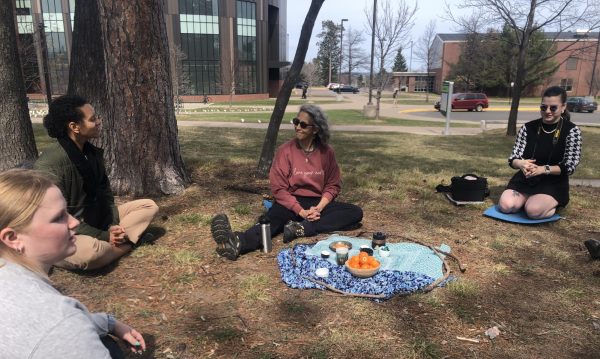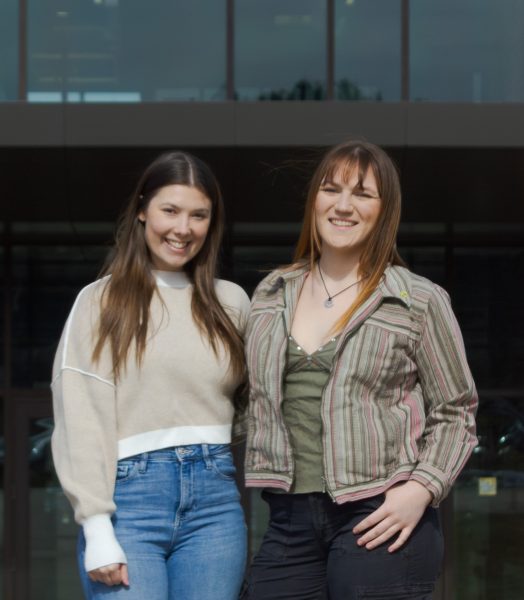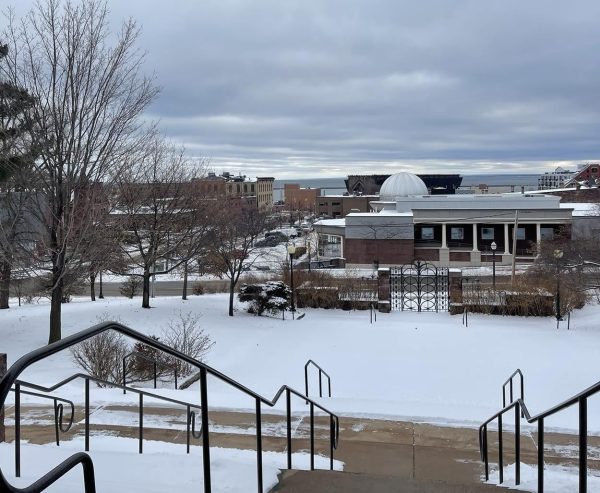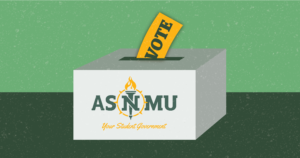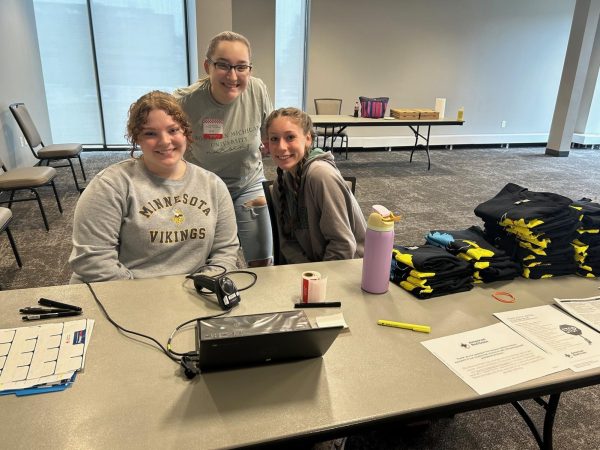COVID-19 Fall Semester Update; Vielmetti Health Center offers at-home COVID tests
7,000 TESTS — The Vielmetti Health Center on campus will continue to provide COVID related services, such as at-home tests.
September 12, 2022
NMU began the fall semester on Aug. 29, the first semester in two years in which students, faculty and staff returned to the classroom without masks in response to the COVID-19 pandemic.
For the last four semesters, the NMU community has resorted to online learning strictly via Zoom and hybrid classes. While these classes required adjustments from both students and faculty, they were important in slowing the spread of COVID-19.
Now, in our third year of COVID-19, cases have gone down within the Upper Peninsula and the NMU campus community, said Dr. Christopher Kirkpatrick, NMU’s medical director.
“I have seen a decrease each semester and this semester is certainly following that trend, so I am not seeing huge amounts or concerning patterns right now,” Kirkpatrick said.
Associate Professor of Biology at NMU, Josh Sharp, said COVID-19 cases are sitting at a moderate level in the Marquette community as well, based on wastewater testing.
“For the past two years, we have been monitoring the levels of COVID in the wastewater, and that is really a good way to kind of get an idea of what is happening with COVID in the community,” Sharp said.
Wastewater testing accounts for cases that have not been reported and individuals with COVID-19 who are asymptomatic and did not receive testing, as the virus can still be detected in wastewater samples, said Sharp.
Wastewater is monitored on a weekly basis from five sites around the city of Marquette. From these sites, samples are taken from the sewer lift stations, in which sewage is pumped from various neighborhoods and ran towards the wastewater treatment plant.
For NMU, sewage flows to a plant located on Pine Street, which gives an estimate of the situation on campus.
“That gives us kind of an easy way to collect samples and get a neighborhood level resolution of what is happening with COVID in the community,” Sharp said. “So we get a picture of Marquette as a whole.”
The data found in the wastewater samples is then sent up to NMU administration as well as federal and state health departments, allowing administrators and health officials to respond, said Sharp.
“If there are some areas of the city that are hotspots compared to others, that might be of interest to them,” Sharp said.
Campus community members who have symptoms of COVID-19 have access to 7,000 at-home tests that are being distributed in the lobby of the Vielmetti Health Center located on the first floor of Gries Hall and by Public Safety at the 24/7 desk by the Services Building.
The at-home tests provided on-campus allow students and other campus community members to use their phones to watch a video on how to take the test correctly. Individuals can also request a test from the pharmacy in the Health Center paid for by their insurance.
“If a student comes in and tests here at the lab, we have a protocol in place where we do a rapid test and get a sample, so that if we needed to do the PCR test we can do so,” Kirkpatrick said. “So, if you are a dorm student or an athlete, the protocol is that if you get that rapid test and it is negative, we will run that PCR as well.”
Students whose COVID-19 test comes back positive, whether the at-home test, the rapid antigen test or the PCR test, have a few options for quarantine and isolation.
Students living in the residence halls can either head home, find a safe option off-campus or with a family member in the Marquette area or stay on the first floor of Spooner Hall on campus, where 22 isolation spaces are available.
“As long as the CDC has a requirement or a recommendation to isolate, the university and I will maintain an isolation dorm,” Kirkpatrick said.
Students who live off campus or in the on-campus apartments are not required to stay in the isolation dorms in Spooner Hall, said Kirkpatrick.
Primary series and booster vaccinations are being provided on a daily basis Monday through Friday by the pharmacist and pharmacy technician while the Health Center is open. Other vaccine sites are available in town at primary care offices and pharmacies as well.
“We are having very little wastage of the vaccine [at the Health Center] which is nice,” Kirkpatrick said. “A lot of the pharmacies still have the no-cost options, so that is pretty convenient, and it expands the number of places that can give the vaccine out.”
Sharp said he highly recommends that people get the newest vaccines as they are rolled out and become available in the area.
“The newer vaccine has some of the sequences to help generate antibodies against the Omicron variant,” Sharp said. “There is probably going to be an uptick in the fall and winter, so try to get your vaccine before it gets cold outside.”
Sharp said the biggest concern for COVID-19 going forward is for those that have not yet had the virus or had it early on in the pandemic, as they will not have the antibodies effective in neutralizing the Omicron variant.
The Bridge System, which allows students to upload their vaccination card, is still being utilized this academic year. Students who have uploaded their primary series of vaccinations – one shot of Johnson & Johnson, or two shots of either Moderna or Pfizer – will receive $100 dining credit which can be used at on-campus eateries.
For now, NMU’s COVID-19 response remains that the campus population is not required to wear masks on campus, and the university will follow protocols set by the CDC.
If the local community sees an uptick in cases, NMU officials and the Marquette County Health Department would respond by putting measures back in place, said Kirkpatrick.
“What we should be preparing for is the potential need to pivot to mask mandates again, should levels rise,” Sharp said.





















